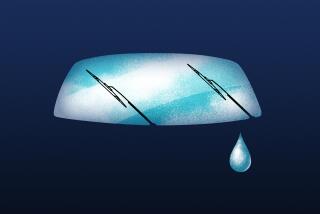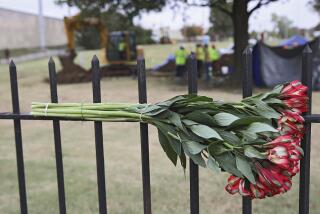Losing a parent during childhood may increase risk of early death
People who experienced the death of a parent in childhood appear to be more likely to die prematurely themselves, new research shows.
A study that tracked more than 7 million people for up to 42 years found that people who lost a parent before they turned 18 were 50% more likely to die during the course of the study than people who made it to adulthood with both parents still alive. The link was seen for both boys and girls who lost either mothers or fathers. It was also seen for people who lost a parent when they were only 6 months old, when they were on the verge of becoming adults, and for all ages in between.
“Parental death in childhood was associated with a long-lasting increased mortality risk from both external causes and diseases, regardless of age and sex of the child and the deceased parent,” researchers reported Tuesday in the journal PLOS Medicine.
Previous studies have found that adults are more likely to die prematurely after the death of a son, daughter or spouse. But few studies have examined how kids fare after the death of a parent, a tragedy experienced by about 3% to 4% of children in high-income countries, according to data from the U.S. Census Bureau.
So researchers from Aarhus University in Denmark, the Karolinska Institute in Sweden and the National Institute for Health and Welfare in Finland examined data on millions of people born in Denmark, Sweden and Finland between 1968 and 2008. National health records made it possible to identify those who had lost a parent during childhood and then follow them as the years passed. Some study subjects were tracked up through early middle age.
The researchers identified 805 children who died on the same day as their parents, or who died within 30 days of their parents due to related causes. In most of those cases, the deaths were due to a single event, usually an accident or a crime, so they were excluded from the study.
Among the remaining 7.3 million people, 189,094 (or 2.6%) lost a parent during childhood, the researchers found. In addition, 39,683 of the people in the study died. Compared with the people who didn’t lose a parent, those who did were 50% more likely to be among those who died young. More specifically, those whose parents died of natural causes were 33% more likely to die prematurely and those whose parents died for other reasons were 84% more likely to die young.
The overall mortality rate for boys and men was more than double that for girls and women, but losing a parent increased that risk by a similar amount for both sexes – 54% for males and 43% for females, the researchers reported.
Compared with people who didn’t lose a parent during childhood, those who lost their mother were 55% more likely to die during the study period and those who lost their father during childhood were 50% more likely to die prematurely (this risk was much greater for boys than for girls).
Children whose parents died were more likely than their counterparts to die of diseases related to the digestive system, circulatory system or nervous system. They were also more likely to die of “suicide and intentional self-harm,” the study reported.
Children of parents who committed suicide had the greatest risk of premature death of any cause, the researchers found.
Deaths in low-income countries can often be traced to poor medical care, which affects both children and adults. But in high-income countries like Denmark, Sweden and Finland, deaths that follow the loss of a parent during childhood are most likely due to other factors, the study authors wrote. The heightened risk of premature death began shortly after a parent’s death and continued throughout the study period.
But this is “only the tip of the iceberg,” the researchers concluded. Those who lose parents when they are young probably have other problems with their physical and mental health, as well as their “social well-being” and their family relationships, they wrote.
For more discoveries about science and medicine, follow me on Twitter @LATkarenkaplan and “like” Los Angeles Times Science & Health on Facebook.







